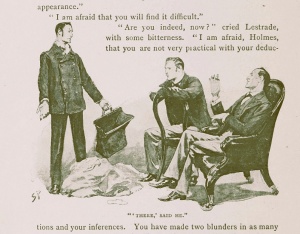
One of the considerations when publishing is the format to deliver the story. Are you aiming for a stand-alone novel, a series of short stories scattered over various anthologies, or a high fantasy series the likes of which will rival Robert Jordan? If working in the visual medium, you would be considering a movie, commercial, or TV series.
The story and the delivery format interact. For some stories, the format is obvious. While other times the format is required by contract, and it shapes how the idea becomes fully realized. Publishing is a business, and the formats available to an author may impact the ideas chosen for writing to bring food to the table.
Multiple book deals tend to be preferred at this point in time, by author, publisher, and reader. Everyone knows what they are getting into. The question then becomes – Series or Serial?
Aren’t they the same thing? I hear some of you ask. Well, a serial is nearly always a series, but a series isn’t always a serial.
I found this cool blog/vlog post which breaks it down: Series vs. Serial: What’s the Difference (appears on Mark Dawson’s Self-Publishing Formula, 3/29/2019, written by Tom Ashford) – last viewed 3/9/2022: https://selfpublishingformula.com/series-vs-serial-whats-the-difference/#:~:text=Put%20simply%3A%20a%20series%20is,correct%20order%20so%20as%20to
In other words, The Simpsons is a series, but not a serial. Bart and Lisa don’t grow up, Homer stays the same. In one episode, the whole town might burn to the ground, but everything resets in the next episode. Similarly Sherlock Holmes short stories, released via magazines and newspapers. Individual stories were serialized, requiring readers to pick up the newspaper several days in a row. But the overall world remained the same between narratives.
Most romance series have through-plots, but most can be read as stand-alone stories. Meaning they are much more like a series (similar characters and world) than a serial (hard and fixed timeline). On the other hand, most High Fantasies are very much serials, following in the footsteps of their granddaddy, The Lord of the Rings. Science Fiction groups of narratives are mixed – some of them following the footsteps of their newspaper tradition of serials in releases, but series between narratives, The Adventures of Flash Gordon, for example. While other science fiction mixes with High Fantasy, following wide-ranging multi-planet narratives, like Dune.
Recently Amazon started Vella (https://www.amazon.com/kindle-vella/): “Serial stories to read one short episode at a time”. It would be interesting to join this experiment.